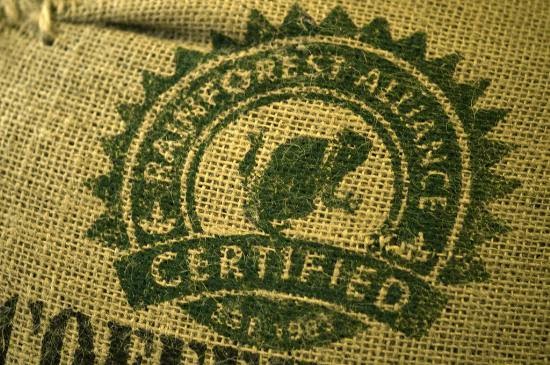I highly recommend by Rachel Northrop! It is the perfect book to read, little-by-little, beside your cup of morning coffee, and the stories you'll find will make you wonder about the cup sitting next to you. It will teach you more than you've ever known about coffee and voice the lives and thoughts of the producers who make it. You can buy it on the website below for a reasonable price and support Rachel who is currently self-publishing her book. http://whencoffeespeaks.com/
I've dedicated the greater part of three days to quickly make my way through Rachel's book in order to get it back to the original owner, Robert Ortiz, who contributes his voice on page 54. After my own encounter with a coffee growing family from Los Santos, every story in the book jumps out at me. In fact, the famers I worked with know well many of the people included in the book. I wanted to share some of what I've learned from my own experiences and from this book.
The purpose of Rachel's book is to connect coffee consumers with the people who make it. She is from New York, and has therefore witnessed the current trend in our culture to want to know the source of our food and the push to buy local. Food trends like these have taken root in California as well, and will continue to spread across the country. But the question she had years ago was how do these newfound consumer ethics apply to coffee, a crop that is climatically limited to growing in places very far from the majority of the world's coffee consuming culture? She pursued the literature on the subject to find that there was none. The reality is that we're ignorant about the people who produce our coffee. While there has been an effort to invest in labels such as "Organic", "FairTrade", "Rainforest Alliance", and "Shade-grown," for most people this is as far down the chain their coffee knowledge goes, which I'm finding out, is not very far. This is why Rachel left home - to get closer to the source of our coffee and to record the voices of Coffeepeople throughout Latin America. Instead of returning to write a book filled with secondhand information, she decided to translate and compile hundreds of conversations she had had, and to pass them on to the rest of us in her book.
Currently half-way through the book, I have learned from coffee growers that labels like "FairTrade" and "Organic" are actually a very shallow and ineffective means of insuring quality coffee and good working conditions. Having worked in coffee for many years, I had heard rumors like this, but never had a complete understanding why these labels can actually be harmful to the farmers who have gone through the trouble, and process of certification, to have them. I am eager to share this information with you because I don't want MY friends buying into the scheme of yet another payed intermediary in the already long chain of coffee production (Remember, the goal of When Coffee Speaks, is to make this chain more transparent between the grower and consumer). First, Fairtrade is a private certification agency which requires farmers to pay $2,000 a year to become and remain certified. It's true that they might be payed a little more for their coffee, that is, if they can find the buyers for it. But this is often not enough to offset the yearly cost of having the certification in the first place. Next, certifications to be "Organic" are also very expensive and time consuming for the famers. The farm must be operated organically for three years before the certification can be applied for. Heaps of extra hard work and care are immediately required when agrochemicals aren't being used, meanwhile, the farmers continue to be payed the same bad price as before. Even after the three years, once the farmer has obtained the certification for his coffee, he is still subject to buyers setting their own prices on it. If they are not agreeable to the farmer, it will be sold at a regular price to the co-op and mixed with all the regular old coffee from around the region. A third-party auditor may come to the farmers land at any time, but they are interested merely in signing off paperwork rather than inspecting the farm or taking soil samples. This means that once a farmer becomes "Organic" there is no guarantee that he stays that way, though the label will (as long as the yearly fees are payed). So when you buy a pound of coffee for $14.40 that is labeled "Organic" or "Fairtrade," you can be certain that a whole lot of other people, from the agency and third party auditors, are now taking a cut of the money, while there is no certainty that it is in every case profitable to the famers.

One certification that seems to be respected among the coffee farmers in Rachel's book is the "Rainforest Alliance" certification, which requires farmers to preserve indigenous trees and replant new ones, rather than cut them all down in clearing for a new grove of coffee trees, and to diversify their coffee farms with other crops to support the ecology of the land and the health of native animal populations. The more common incentive for famers to obtain this certification is not usually for higher pay, but for a more sustainable operation of their farm. Farmers realize now that if they do not grow coffee in a sustainable way, their won't be a healthy, producing farm left for their children. I believe this is something that coffee consumers like us should intentionally support when we choose where we buy our morning cup of coffee.
The most important message that I'm taking away from When Coffee Speaks is the importance of transparency in the coffee we drink. It's becoming more common in the big cities of the East and the West Coast alike to locate coffee shops who make an effort to sell coffee with identity. Where does our coffee come from? Who are the people that make it? What is their life like? What is the future of their children? These questions should be in the mind of coffeehouses and roasters when buying green coffee, and when we find businesses who work hard to establish these connections, who buy directly from coffee farmers, we should change our coffee habits to support them, to support the people growing our coffee. How do you find places like this? Make a week or month long commitment to discover new coffeehouses in your town/city. At each one, ask the baristas where the coffee they are serving comes from. If it was purchased direct or from roasters who buy direct, believe me, they will know. Coffeehouses who do this kind of thing are proud of it, and are quick to educate their baristas about the proper response (Besides, wouldn't you want your daily baristas to be passionate about where the coffee comes from?). If the response you get is something like, "I think Ethiopia, you know, that one place in Africa," or "Our coffee is the best Italian roast ever," then forget it. Coffee isn't grown in Italy and Ethiopia is too large a coffee producing country to mean anything as a title. The answer you are looking for should make you feel connected to people. What you want is a specific farm or region in a country. What you are looking for are family names, which is usually what a coffee farm is named after. When you find places who know the source of their coffee, pay a little more, drive a little farther, and make the effort to drink sound coffee.
The goal of specialty coffeehouses and roasters should not be solely focuses on better and better coffee every day - the primary goal should be to build relationships with people who grow coffee and to look for opportunities to buy directly from them. Cut out the intermediaries and know where your money is going because it is becoming more and more possibly every day.
This is what I've seen with amazement while traveling in Costa Rica these last few months. This is what restored my hope in a career in coffee. The insights I have taken from Rachel's book have the benefit of living and traveling in the same coffee growing communities that she did less than two years ago, but I think there is a lot for YOU to learn, whoever you are, inside of this unique book as well. Buy it, read it, share it, and make the daily habit of drinking coffee a more meaningful part of your day.
The goal of specialty coffeehouses and roasters should not be solely focuses on better and better coffee every day - the primary goal should be to build relationships with people who grow coffee and to look for opportunities to buy directly from them. Cut out the intermediaries and know where your money is going because it is becoming more and more possibly every day.
This is what I've seen with amazement while traveling in Costa Rica these last few months. This is what restored my hope in a career in coffee. The insights I have taken from Rachel's book have the benefit of living and traveling in the same coffee growing communities that she did less than two years ago, but I think there is a lot for YOU to learn, whoever you are, inside of this unique book as well. Buy it, read it, share it, and make the daily habit of drinking coffee a more meaningful part of your day.
When Coffee Speaks: Stories From and Of Latin American Coffeepeople by Rachel Northrop
$24 Printed upon order here.
http://www.mcnallyjackson.com/bookmachine/when-coffee-speaks-northrop



No comments:
Post a Comment